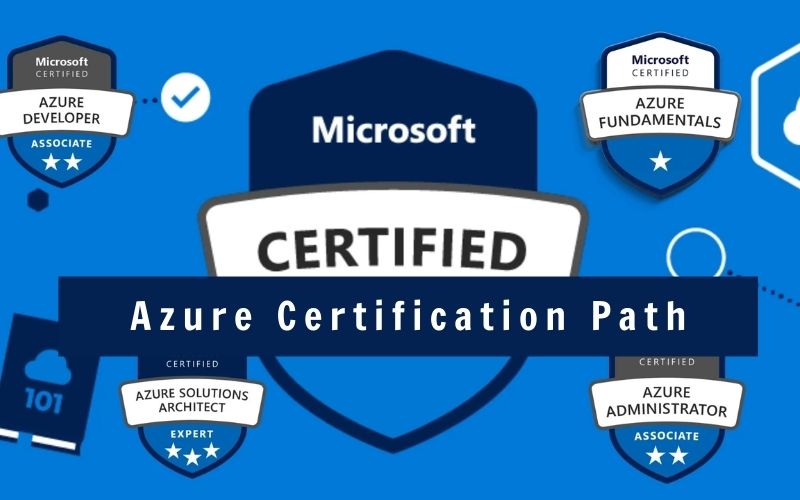As cybersecurity becomes a major concern, mid-market and big organizations have made significant investments in employing “ethical” or white-hat hackers to exploit weaknesses in their systems. These trained experts typically have the same competence as criminal hackers, but they are required to notify corporations before any illicit activity threatens their systems. People interested in this career path are required to demonstrate their abilities to employers, typically by acquiring a certification. In this article, IT Exams aims to guide individuals in the CEH Renewal process, which is a certificate issued by the EC-Council for becoming a white-hat hacker.
What Is CEH Certification?
A CEH, or Certified Ethical Hacker, certification verifies your ability to grasp and apply network security processes for internet-connected aspects of a business. This might entail implementing proactive security measures to prevent hackers from accessing sensitive data on a company’s network through malware and computer viruses. The CEH certification indicates to employers that you can use your computer programming skills and network security knowledge to prevent these attacks.
One important part of a CEH certification is that recipients pledge to follow the law and an ethical code while putting their skills to use. Because many ethical hackers share similar talents and knowledge with criminal hackers who attack networks, the CEH certification attempts to show employers that the recipient works ethically and with integrity.
For further information, there is a version of the CEH so-called Certified Ethical Hacker (CEH v12) certification course. It is one of the most sought-after security qualifications in the world.
Why Renew Your CEH Certification?

According to EC-Council requirements, CEH renewal is required. The CEH Certificate validates the individual’s ongoing competency as technology advances and new security concerns emerge. Many businesses, such as the United States Department of Defense, also demand valid CEH credentials to retain employment. Also, if you change jobs frequently, it is a good idea to maintain yourself properly informed about the current approaches used in the sector, which is a typical prerequisite for job applications. Another incentive to renew your CEH certificate is to learn new content, auto-renew other EC Council qualifications, and make a good impact on your resume.
On this website, you can challenge yourself with CEH practice exams if you intend to take the CEH certification exam in the future.
What Are CEH Renewal Requirements?
To renew CEH certification, three key ECE program requirements have to be fulfilled. They are as follows:
- 120 ECE Credits Every Three Years: To renew your CEH certification, you must obtain 120 ECE credits every three years. There are several ways to obtain CEH ECE credits. We will go through all of your options and how you may fulfill your ECE requirements for renewing your CEH certification.
- Submit 40 ECE Credits for Each Year of the Three-Year Period: The EC Council requires you to submit your CEH ECE credits each year of the three-year period. This is essential throughout the CEH renewal procedure. If you wait until the end of the three-year term and attempt to obtain 120 ECE credits in the last year of the CEH renewal cycle, you will almost certainly fail to renew your CEH certification. To fulfill the 120 ECE credits required to renew your CEH certification, you must earn ECE credits gradually each year.
- EC-Council Annual Membership: Since 2016, EC-Council has expected qualified professionals to be annual certified members of their organization. This is also required to renew CEH certification. The yearly membership cost is $80, and this is the only way to submit your acquired ECE credits for CEH renewal.
To deeply understand CEH renewal requirements, take a look at the explanation of the ECE Scheme and ECE Credits as follows:
- ECE Scheme:
The EC-Council established the ECE (EC-Council Continuation Education) Programme to guarantee that qualified personnel behaves in compliance with any new needs that may arise as technology advances. For the same reason, the plan mandates a three-year validity term for all EC-Council-issued certifications.
- ECE Credits:
ECE Credits are necessary for certification renewal and are granted in a variety of ways. CEH certification renewal requires a total of 120 ECE credits over a three-year period. You can use the method below to work out how to collect 120 ECE Credits within the validity period of your certificate.
Read more >> CEH Certification Requirements: Guide to Become a Certified Ethical Hacker
How to Renew Your CEH Certification?

To take your CEH renewal, you need to follow the steps outlined below:
Step 1: Determine Your Renewal Eligibility
To be eligible for CEH renewal, you must hold a current and active CEH certification. You can check your certification status by logging into your account on the EC-Council website.
Step 2: Understand Renewal Requirements
CEH certification is valid for three years, after which holders must renew their certification by earning a minimum of 120 Continuing Education Units (CEUs) during the certification period and submitting a renewal application and fee. CEUs must be earned from approved providers and must be relevant to the CEH certification.
Step 3: Earn CEUs
To earn CEUs, you can attend training courses, participate in webinars or conferences, read relevant books or articles, or complete self-paced online courses. CEUs can be earned from EC-Council or other approved providers.
Step 4: Track Your CEUs
It is essential to track your CEUs as you earn them to ensure that you have enough to meet the renewal requirements. You can use the EC-Council’s online tracking tool or another tool of your choice. Be sure to keep records of your CEUs in case of an audit.
Step 5: Submit Your Renewal Application

Once you have earned the required number of CEUs, you can submit your renewal application and fee to EC-Council. The application must include a list of the CEUs you have earned and any necessary documentation. EC-Council will review your application and notify you of its status.
Step 6: Pay the CEH Renewal Fee
You need to pay a CEH renewal fee to the EC-Council to renew your certification. The fee varies depending on various factors such as the country you reside in and the time left on your certification.
To pay the CEH renewal fee, log into your EC-Council account and select the “Renew Now” option. Follow the prompts to submit your payment online using a credit or debit card.
If you prefer to pay by check or wire transfer, contact EC-Council customer support for further instructions.
Once your payment has been processed, you will receive an email confirmation from EC-Council. Your new CEH certificate will be issued once your renewal application and CEUs have been reviewed and approved.
Step 7: Maintain Your CEH Certification
After completing the renewal process, you will receive a new CEH certificate that is valid for three years. To maintain your CEH certification, you must continue to earn CEUs and renew your certification every three years.
What Happens If You Let Your CEH Certification Expire?
After you gained the certification, you must renew your CEH certification every three years. To do this, you must earn 120 ECE credits as we have detailed above. If you fail to submit ECE credits in a three-year period, your CEH certification will be suspended. You will not be able to use EC-Council logos, designations, and other benefits of CEH certification as well.
If your CEH certification is suspended, EC-Council allows you to submit 120 CEH ECE credits during the first year after CEH certification expiration. If you fail to submit 120 ECE credits this year, you have to retake the CEH certification exam.
Note that, if your CEH certification is expired, you must earn 120 ECE credits in the first year after expiration and you must earn another 120 ECE credits to renew your CEH certification for the second three-year period. Since this will be very challenging, we strongly recommend you follow CEH renewal steps every year.

CEH ECE Credits Sources to Renew CEH Certification
More than 10 alternative techniques for getting CEH ECE credits are recognized by EC-Council. Examples include volunteering, meeting, publishing, educating, seminars, uncovering vulnerabilities, presenting, reading IT security resources, and a number of other activities. The EC-Council ECE article describes all of the ways to obtain CEH ECE credits. We will detail the most straightforward and cost-effective method for obtaining your 120 CEH ECE credits below.
Enroll in Online IT Security Courses (60 CEH ECE Credits)
For renewing your CEH certification, EC-Council accepts one hour of IT security training or course as one CEH ECE credit. It may be tough to get classroom IT security training in your region. Even if you find it, you must schedule time for classroom education. Occasionally you choose a CEH ECE credit-granting course and make plans to attend the training; however, things change on the training day, and you may be unable to attend.
Follow Meetings, Seminars, and Conferences about IT Security (16 CEH ECE Credits)
Associations or chapters might arrange IT security meetings. IT security seminars, events, and conferences are all options. EC-Council accepts one hour of activity as one CEH ECE credit. For example, a two-day IT security seminar or conference may earn you 16 CEH ECE credits.
On the internet, you may hunt up IT security seminars, conferences, and events. Most employers cover the cost of these events, so you may be able to reimburse your company. These activities will not only assist you in obtaining CEH ECE credits to renew your CEH certification but will also keep you current on market realities.
Read an IT Security-Related Resource (5 CEH ECE Credits)
According to EC-Council, reading information security-related publications can earn you up to five CEH ECE credits. Reading a magazine, IT security books, blogs, or any other resources can help you extend your awareness of information security. You will receive five CEH ECE credits toward your CEH renewal.
Presentation (12 CEH ECE Credits)
Contributions to the profession are highly valued by the EC-Council. If you create and present an information security-related session to your peers at a chapter meeting or seminar, you will gain three CEH ECE credits for each hour you present. Preparing a four-hour presentation to share with your colleagues, for example, can earn you 12 CEH ECE credits.
Identify New Vulnerabilities (10 CEH ECE Credits)
You may identify IT security problems in your company as a working information security specialist. If you find a flaw in your organization, you can earn up to 10 CEH ECE credits toward your CEH renewal.
Other Sources (17 CEH ECE Credits)
You can complete the remaining CEH ECE criteria by volunteering at an IT security event or teaching a class. For each hour of volunteer work and three hours of teaching, you can earn one ECE credit. Preparing a one-day (eight-hour) information security training, for example, will earn you 24 CEH ECE credits.
It should be noted that there is no maximum limit for submitting ECE credits for CEH renewal in some areas. You can, for example, meet all of your ECE requirements by completing hours of continuing education or attending seminars. Reading IT security materials, on the other hand, cannot earn you more than five CEH ECE credits.

More Ways to Earn ECE Credits
Continue reading if you have followed our approach up to this point and still need a few ECE Credits for CEH certification renewal. While we have highlighted the most frequent and efficient sources of ECE Credits, there are a few more options. The remaining sources currently recognized by the EC Council are mentioned below:
- Authoring a published Article, Book Chapter, or White Paper – 20 credits
- Building an IT Security Tool – 40 credits
- Authoring a published InfoSec Book – 100 credits
- EC-Council Beta Exam Testing – 80 credits
- EC-Council Exam Survey – 20 credits
- EC-Council Item Writing – 3 credits
- EC-Council Job Task Analysis Survey – 40 credits
- Higher Education Per Quarter – 10 credits
- Higher Education Per Semester – 15 credits
FAQs

Does Certified Ethical Hacker expire?
Yes, if your CEH certificate is not remediated within 12 months after suspension, it will expire. If you are unable to resolve the suspension within 12 months, your CEH Certification will be revoked, requiring you to retake the CEH test.
Does CHFI renew CEH?
Yes, as part of the ECE System, completing the Computer Hacking Forensic Investigator (CHFI) from EC-Council will grant you 120 ECE Credits. The credits can subsequently be used to renew your CEH certification.
What is EC-Council membership?
If you want to get certified in any of their ECE certificates, you must be an EC-Council member. Members can make use of some privileges, which are detailed below but must pay a nominal membership fee of USD 80.
How many times can you take the CEH exam?
Candidates can use the retake policy to purchase another exam voucher without having to wait for the examination on the first try. Future failures to pass the exam will necessitate a 14-day wait between retakes, with a maximum of five attempts in a 12-month period. A 12-month waiting period is required for a sixth try.
Can I take CEH without training?
Previous cybersecurity experience is not required for the training course. The second option permits applicants with at least two years of prior information security expertise to bypass the training and proceed straight to the certification exam.
Conclusion
While renewing your CEH certificate may appear time-consuming, it is unquestionably necessary if you want to succeed in your cybersecurity profession. With a three-year validity period and a minimal membership fee, you may quickly renew your certificate without any effort. You must obtain 120 ECE credits throughout the validity period, which, as previously indicated, is not difficult. Once you have earned your credits, simply enter them into your Aspen Portal, and your certificate’s validity will be renewed for another three years.
In short, renewing your certification comes with several benefits, such as staying up-to-date with the latest developments, boosting your credibility and professionalism, and expanding your network. Do not overlook the importance of CEH renewal, and take the necessary steps to ensure that your certification remains valid and up-to-date.
[Sassy_Social_Share]


